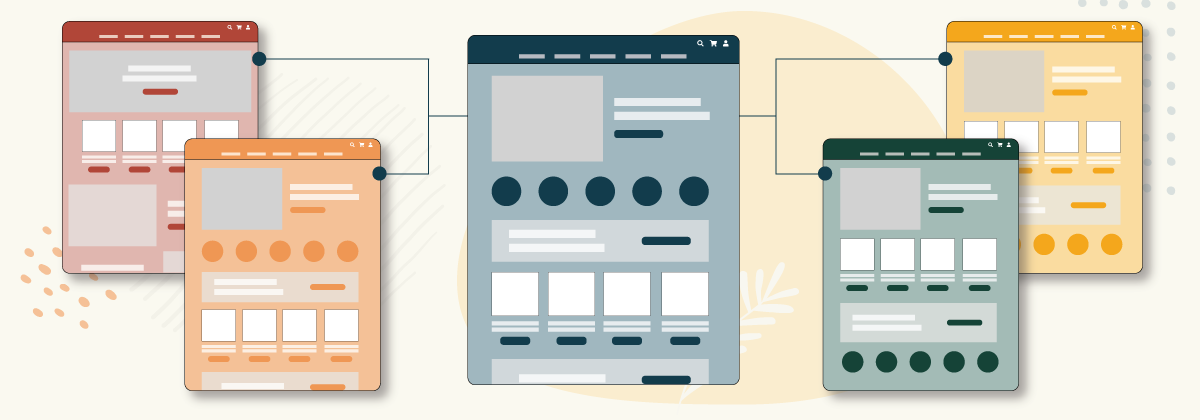Riddle us this. Which do you think ultimately costs more, a high-end, customized website or one built on a template? If you said template, you’d be correct.
Website templates dominate the web scene today. In fact, many businesses clamor for the opportunity to use them because they are affordable and straightforward. However, their convenience comes at a cost as their limitations ultimately lead to exponential downside.
Though there certainly are times when a template website makes sense, those times are rare. But if the low cost of repurposing a template to fit your eCommerce site’s purpose looks attractive on the surface, think again. Because just below it is a raging current of limitations, inefficiencies, and disposability.
Even if you don’t operate an eCommerce store, keeping up with trends and establishing yourself as a savvy business owner means creating a stellar, high-performance website that keeps every customer’s attention and makes you stand out.
Because creating a high-quality experience and feel from the first moment a user is on your site is essential to distinguish your website from your competitors. If you’re torn between making an investment that simply costs and making one that’s costly, keep these in mind:

Custom design is flexible, a template is not
It is impossible to get creative when using a template. Sure, you can easily add images and text, but that is hardly a customization feature. If you are looking for unique layouts and functionality, stay away from templates. A website based on a template will never be unique, and with the number of websites competing for attention, your site should not look like everyone else’s.

Custom design solves for problems, a template hides them
Templates can look amazing on the surface, but once you get into their code, you’ll often find serious problems. Many self-build templates offer additional features and customization for additional fees, charge for connecting the website to the domain, and even updates!

Custom design costs money, a template can be costly
Remember, you get what you pay for. Your website serves as your first best impression to consumers. Using a template is easily recognizable, usually doesn’t afford ease of use, and because they are inexpensive doesn’t account for even the most basic interaction, which oftentimes results in a poor user experience and an even quicker exit.

Custom design is unique, users easily recognize a template
Template providers use a ton of advertising. With their generic titles and poorly designed navigation, these features are distinctive enough to tell visitors you didn’t take their interests to heart. Website templates suggest a lack of creativity and inattentiveness, thus causing your brand to suffer. Popular templates are used thousands of times over and are remarkably discernible and using one will certainly make you stand out… but for all the wrong reasons.

Custom design is scalable and adaptable, a template resists change
Building a website on a system created by someone else is a sure way to lock yourself out of changing technologies. In fact, it oftentimes is more work and expense to simply “bolt-on” a solution to an existing template anytime functionality needs to be added if not having to start from scratch if industry standards and trends change.

Custom design is built for SEO, a template oftentimes is not
There is no guarantee that the template being used will positively impact the website’s search rank. Many designers never think about SEO when putting together pre-made templates. With custom-designed and developed sites, like the ones Brand Labs creates, SEO and more are integrated from the ground up to ensure you are always well exposed to user searches.
Custom website design and development might sound daunting, but the resources put into the project can lead to a better customer experience that brings them back repeatedly.
So, if standing out, user-friendliness, and returning customers are your thing, paying for custom design and development will always be less costly than a template that is, by its very nature, meant to be a one-size-fits-all solution… that never is.







